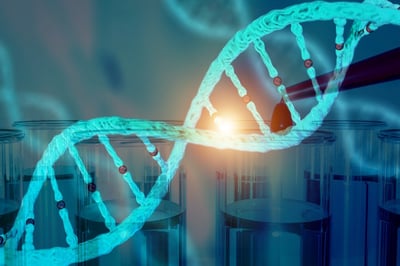FORCE's eXamining the Relevance of Articles for You (XRAY) program looks behind the headlines of cancer news to help you understand what the research means for you.
XRAY is a reliable source of hereditary cancer research-related news and information.
Learn more about the XRAY program
Breast Cancer
Relevance: High


Quality of Writing: High


Article : FDA busts myths of preventing and treating cancer by eating apricot kernels, herbs, and other ingredients
Most relevant for: People diagnosed with or concerned about their risk for cancer
Maggie Fox (NBC News) writes about a new FDA report that warns of 14 "fraudulent” cancer products claiming to either cure or treat cancer (1). The companies that sell these products claim that many of them also prevent cancer, but are they safe or effective? (6/26/17)
Read More
Relevance: Medium


Strength of Science: Medium


Research Timeline: Human Research


Study : Cost savings associated with a shorter course or omission of radiation treatment for early-stage breast cancer
Relevance: Medium


Strength of Science: Medium


Research Timeline: Human Research


Most relevant for:
Breast cancer treatment costs are high. Lumpectomy followed by radiation therapy is a common treatment for early-stage breast cancer; however, patients may receive different radiation regimens, which carry different costs. Authors of this research study wanted to estimate the potential health care cost savings if early-stage breast cancer patients received the least expensive radiation regimen for which they were safely eligible. (6/20/17)
Read More
Relevance: Medium-High


Strength of Science: Medium


Study : Pregnancy around the time of a breast cancer diagnosis does not negatively affect survival
Most relevant for: Young women diagnosed during or right after pregnancy and young survivors considering pregnancy after breast cancer
The number of women who become pregnant around the time of, or after a breast cancer diagnosis is increasing. However, it is unclear whether pregnancy around the time of a breast cancer diagnosis impacts survival. This recently published study demonstrates that the timing of pregnancy does not negatively affect breast cancer survival rates. (5/24/17)
Read More
Relevance: High


Strength of Science: Medium-High


Research Timeline: Post Approval


Study : Does scalp cooling help prevent hair loss after chemotherapy?
Relevance: High


Strength of Science: Medium-High


Research Timeline: Post Approval


Most relevant for: Patient undergoing chemotherapy
Hair loss is one of the most recognized and distressing side effects of some chemotherapies. Two studies looked at the use of scalp cooling therapy to help reduce hair loss after chemotherapy for early-stage breast cancer. (5/15/17)
Update: Based on data from clinical trials, the FDA approved Dignicap scalp cooling device for treatment in patients diagnosed with solid tumors who are receiving chemotherapy.
Read More
Relevance: Medium-Low


Strength of Science: Medium-Low


Research Timeline: Animal Studies


Study : Common genetic change found in some tumors of patients who relapse after aromatase inhibitor treatment
Relevance: Medium-Low


Strength of Science: Medium-Low


Research Timeline: Animal Studies


Most relevant for: Patients with ER+ breast cancer
About one in five people diagnosed with estrogen receptor-positive (ER+) breast cancer relapse within 10 years after treatment. Researchers and health care providers do not know why this happens. This early research aims to identify a genetic change in the tumor that may cause relapse, but more studies are needed to understand why patients relapse and who is at risk. (5/3/17)
Read More
Relevance: Medium-High


Strength of Science: Medium


Study : Does eating soy affect the risk of death in breast cancer survivors?
Most relevant for:
Is eating soy safe for people who have had breast cancer? This topic has been controversial among health care providers, patients, and survivors for many years because research has yielded mixed results. Some studies suggest people who have been diagnosed with breast cancer should eat more soy products, while other studies recommend they eat less or avoid it altogether. Which should it be? Adding to this research is a new study that asked breast cancer survivors about their soy consumption before and after diagnosis. (4/27/17)
Read More
Relevance: Medium-High


Research Timeline: Post Approval


Study : FDA report claims women with breast implants may be at risk for rare cancer
Most relevant for: Women who had or are consideration breast reconstruction with implants
THIS INFORMATION HAS BEEN UPDATED. The FDA issued an update in March, 2018 about Breast Implant Associated Anaplastic Large Cell Lymphoma (BIA-ALCL). This was covered in a more recent XRAY review. On 07/25/19, the FDA announced a recall of Allergan BIOCELL textured implants and expanders, due to their association with BIA-ALCL. This was also covered in a more recent XRAY review.
Recent headlines highlighted an FDA report stating that patients with breast implants may be at increased risk for a rare type of non-Hodgkin lymphoma. What is the scientific evidence behind this claim? (4/21/17)
Read More
Relevance: Medium-High


Strength of Science: Medium


Study : Nearly half of breast cancer patients experience a severe side effect after treatment
Most relevant for: People diagnosed with early stage breast cancer
While clinical trials track treatment side effects, fewer studies look at the burden of side effects on women undergoing breast cancer treatment or compare the side effects of different treatments. This study looks at the severity of side effects experienced by women treated for early-stage breast cancer. (4/11/17)
Read More
Relevance: Medium-High


Strength of Science: Medium-Low


Study : Routine breast cancer screening leads to overdiagnosis
Relevance: Medium-High


Strength of Science: Medium-Low


Most relevant for: Women at average risk for breast cancer
Routine breast cancer screening for women of average risk has been controversial for many years because some believe that the benefits do not outweigh the risks. Recent headlines covering a study in Denmark suggests that routine breast cancer screening leads to “overdiagnosis” of breast cancer. (4/4/17)
Read More
Relevance: Medium-Low


Strength of Science: Medium-High


Research Timeline: Animal Studies


Article : Does metastasis happen earlier than previously thought?
Relevance: Medium-Low


Strength of Science: Medium-High


Research Timeline: Animal Studies


Most relevant for:
Sharon Begley discusses an unconventional new idea about how cancer cells spread (a process known as metastasis) in her recent piece for the website STAT. She states that, “cancer cells spread way earlier than thought, seeding metastases that cause most deaths.” (3/28/17)
Read More